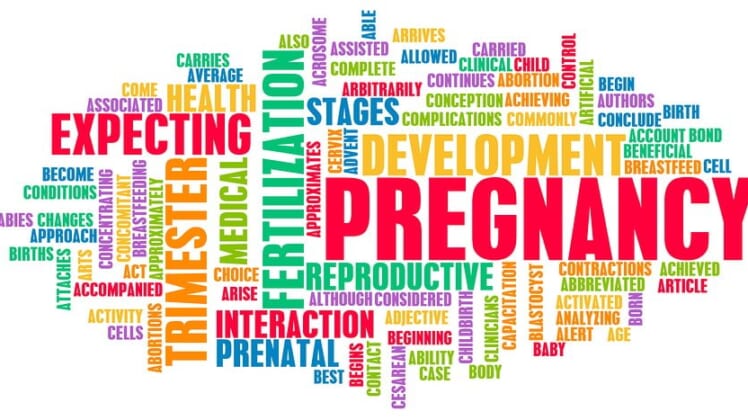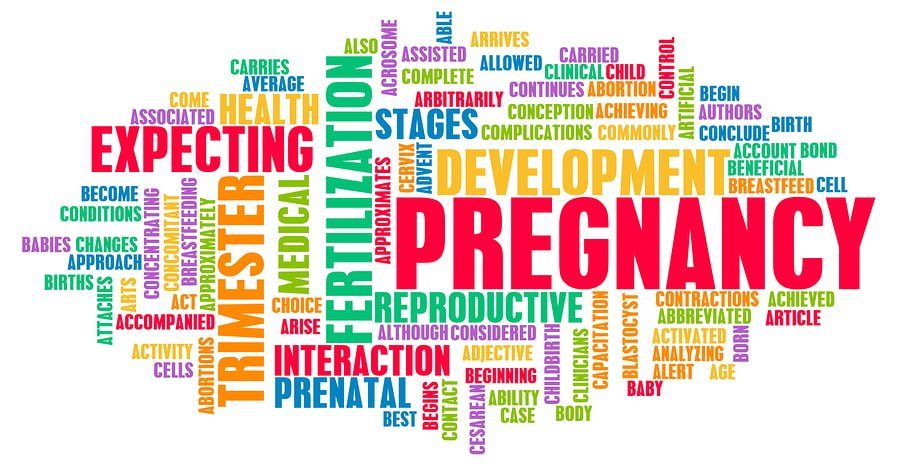
The first twelve weeks of pregnancy are commonly referred to as the first trimester. This is only the beginning of a series of huge physiological changes that will occur over the next nine months. For a first time mother especially, this is a very new, exciting, and often scary time. Becoming familiar with what to expect in the coming months will make things easier and hopefully help you to manage some of the not so fun symptoms you might face. Some of these symptoms we hear about often, such as the dreaded morning sickness and cravings. There are others we don’t expect, nor hear much about like constipation and dizziness. This is the tell all guide to prepare you for what’s to come, and to help you manage in the healthiest way possible!
Nausea
Unfortunately, 88% of women experience nausea and vomiting during their first trimester. Usually beginning around the 4 to 6 week mark, this symptom is often referred to as “morning sickness.” Though it is commonly felt in the morning, it may persist throughout the day or appear at times other than the AM. The good news is, 50% of women experiencing nausea find relief after about 14 weeks of pregnancy. For the rest of us, it takes about another month. Though it is rare, some women unfortunately deal with nausea throughout their entire pregnancy. If you become sick so frequently that it is impairing your lifestyle, or you struggle to tolerate fluids, it may be time to see a doctor. It is important to stay well hydrated and intravenous fluids may be necessary. Increased estrogen and hCG hormones are both believed to play a role in the onset of nausea during pregnancy. An empty stomach only worsens nausea, so be sure to eat small meals often throughout the day. The smell of lemon, drinking lemon water, or other lemon flavored drinks may settle the stomach. Sports drinks are a good option as well. Eating a protein rich bedtime snack such as a hardboiled egg, low fat cottage cheese, or a handful of nuts can make the mornings easier. The protein will help to tide you over and ensure you will not wake up on a completely empty stomach. Light exercise diverts blood from the stomach to the muscles, alleviating nausea. A leisurely walk just might do the trick— get up and get moving! High fat foods are known to irritate the stomach, so it is best to stick to low fat, easily digestible foods— think lean proteins like skinless chicken, and eggs. More healthy snacks that are likely tolerable on a queasy stomach include oatmeal, bananas, and sugar free applesauce. Acupressure wrist bands are sometimes recommended to relieve nausea as well.
Cravings
Four out of five women report cravings during pregnancy and 85% experience aversions. The sudden burst of hormones that follow conception begin to alter taste, smell, and digestion— leaving you to crave some funky foods, while gagging at the smell of those that you used to love. The good news is, there is no need to force yourself to eat something you are having an aversion to. If it is a food rich in essential nutrients, be sure to replace it with another good option. For example, if it is a protein like meat, which is a common aversion in pregnant women, find a healthy substitute like chicken or plant-based proteins like quinoa in order to ensure you’re still getting adequate nutrients. You may also allow yourself moderate indulgences as long as they are not harmful to you or your baby’s health. Do keep in mind that limiting empty calories is important for fear that they will begin to take the place of nutrient rich foods. With that said, a little ice cream after dinner never hurt anyone.
Sore Breasts
An amazing 77% of women experience sore breasts or breast tenderness during pregnancy. What’s causing this tenderness? The mammary glands of the breasts are enlarging in preparation for breastfeeding. This is often accompanied by darkening areolas. Wearing a supportive and comfortable bra, like a sports bra, should help.
Extreme Fatigue
Extreme fatigue is experienced by 78% of women during their first trimester. Increased progesterone is the possible culprit for inducing a sedative effect. It is important to be checked for anemia, which is common during pregnancy, because the baby is now taking a portion of the iron in your blood. If anemia is not to blame, light exercise might help to alleviate fatigue. Prenatal vitamins and extra sleep can also help ease these symptoms. Snacking on food with both protein and complex carbohydrates might also give you a boost of lasting energy. Think eggs with whole grain toast, hummus and veggies, or Greek yogurt with whole grain cereal or oats.
Frequent Urination
The growing uterus pressing on the bladder is what causes frequent urination, which often persists throughout pregnancy. The kidneys are also working overtime to flush toxins from the body. Avoiding caffeine is best because it is a bladder stimulant. Also, to avoid numerous nighttime trips to the bathroom, avoid drinking liquids a few hours before bed.
Dry Eyes or Changing Vision
Fluctuating hormones may cause dry eyes or changes in vision. Eye drops can help lubricate the eye, though a temporary change in eyeglass prescription may be necessary for those with eyeglasses. It is possible that these changes cause contacts to become uncomfortable for a portion of the pregnancy, therefore reverting back to glasses may be the only option for relief.
Dizziness/Lightheadedness
Dramatic changes to your cardiovascular system during pregnancy leads to a dilation of your blood vessels and often a drop in blood pressure. This might leave you feeling lightheaded or dizzy. To prevent mild, occasional dizziness, avoid prolonged standing and rise slowly after lying or sitting down. Be sure to eat small meals frequently, and stay well hydrated. Due to increased blood volume (you are now supplying for yourself and for your child) it is also common to have a racing heart. Heart rate can increase 10 to 15 beats per minute. If you are experiencing more extreme symptoms than those discussed, it is important to call your doctor.
Heartburn and Constipation
In order for the baby to get its fair share of nutrients, the body slows its transport of food through the digestive system. This, along with growing pressure from the uterus on the rectum and intestines, causes constipation. Pregnancy hormones inducing relaxation of smooth muscle throughout the body also leads to the relaxation of the valve between your stomach and esophagus. This can allow stomach acid to leak into your esophagus, causing heartburn. To prevent constipation, increase fiber intake, and participate in light to moderate physical activity. Fiber rich foods include fruits and vegetables, whole grains, and legumes. Small, frequent meals are helpful, and limiting the amount of acidic foods will help to tame heartburn.
Bloating
The boost in both progesterone and estrogen in the body causes swelling and sluggish intestines. This leads to gas and bloating. Eating small meals and avoiding foods that cause gas such as cabbage, beans, and fried foods will help to alleviate the discomfort. Yoga may also help to get things moving through the body.
It is important to be aware of what is going on in your body in everyday life, and even more important during pregnancy. The huge surge in hormones that occurs brings about a series of changes. Note these common symptoms and know that though you may not feel normal, what you’re going through is common. With that said, if you are having any symptoms that are extreme or alarming to you, it is important to call your doctor immediately.

